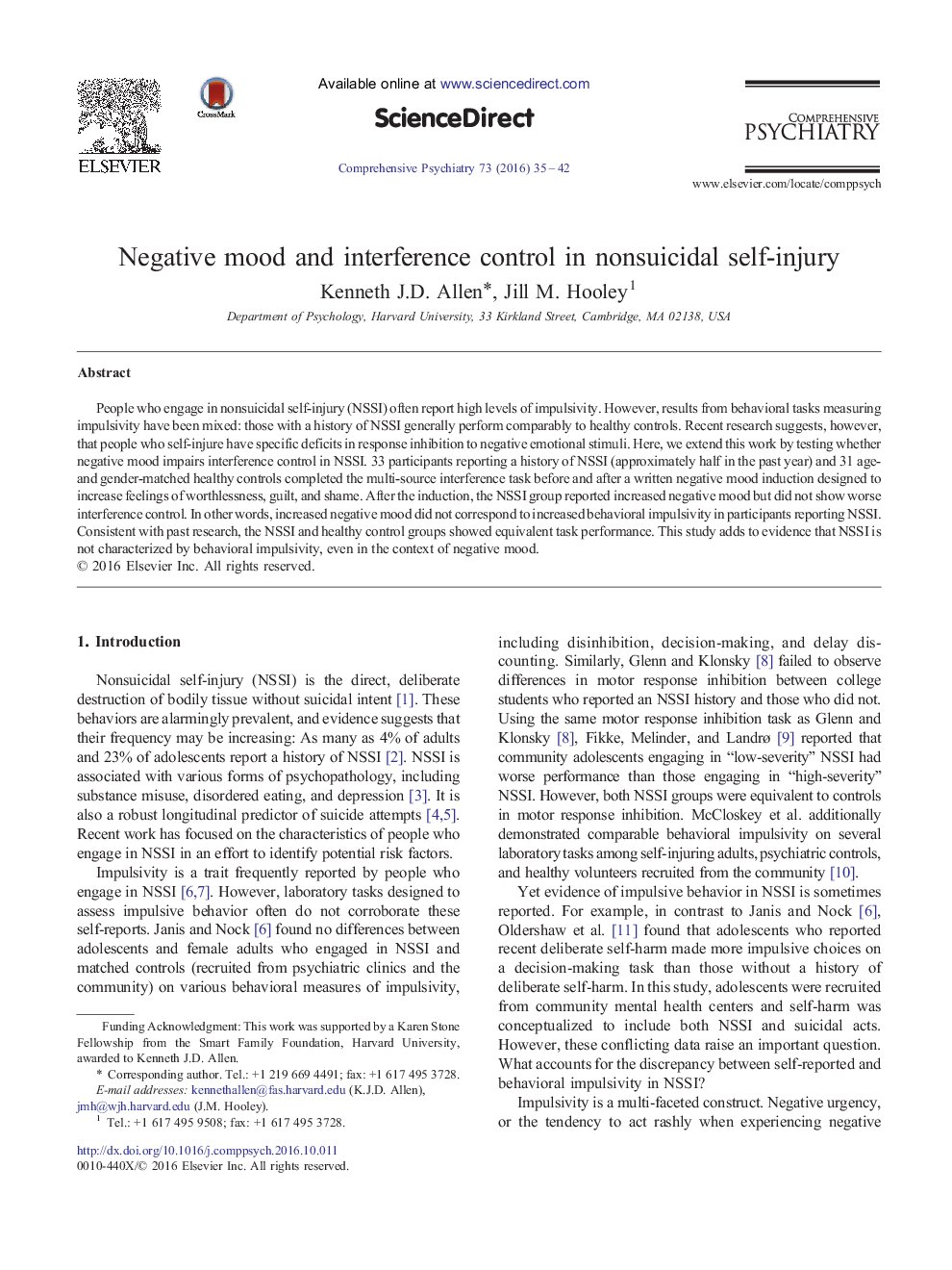| کد مقاله | کد نشریه | سال انتشار | مقاله انگلیسی | نسخه تمام متن |
|---|---|---|---|---|
| 4930258 | 1432642 | 2017 | 8 صفحه PDF | دانلود رایگان |
عنوان انگلیسی مقاله ISI
Negative mood and interference control in nonsuicidal self-injury
ترجمه فارسی عنوان
کنترل خلقی و تداخل منفی در خود آسیب ناسازگاری
دانلود مقاله + سفارش ترجمه
دانلود مقاله ISI انگلیسی
رایگان برای ایرانیان
موضوعات مرتبط
علوم زیستی و بیوفناوری
علم عصب شناسی
روانپزشکی بیولوژیکی
چکیده انگلیسی
People who engage in nonsuicidal self-injury (NSSI) often report high levels of impulsivity. However, results from behavioral tasks measuring impulsivity have been mixed: those with a history of NSSI generally perform comparably to healthy controls. Recent research suggests, however, that people who self-injure have specific deficits in response inhibition to negative emotional stimuli. Here, we extend this work by testing whether negative mood impairs interference control in NSSI. 33 participants reporting a history of NSSI (approximately half in the past year) and 31 age- and gender-matched healthy controls completed the multi-source interference task before and after a written negative mood induction designed to increase feelings of worthlessness, guilt, and shame. After the induction, the NSSI group reported increased negative mood but did not show worse interference control. In other words, increased negative mood did not correspond to increased behavioral impulsivity in participants reporting NSSI. Consistent with past research, the NSSI and healthy control groups showed equivalent task performance. This study adds to evidence that NSSI is not characterized by behavioral impulsivity, even in the context of negative mood.
ناشر
Database: Elsevier - ScienceDirect (ساینس دایرکت)
Journal: Comprehensive Psychiatry - Volume 73, February 2017, Pages 35-42
Journal: Comprehensive Psychiatry - Volume 73, February 2017, Pages 35-42
نویسندگان
Kenneth J.D. Allen, Jill M. Hooley,
